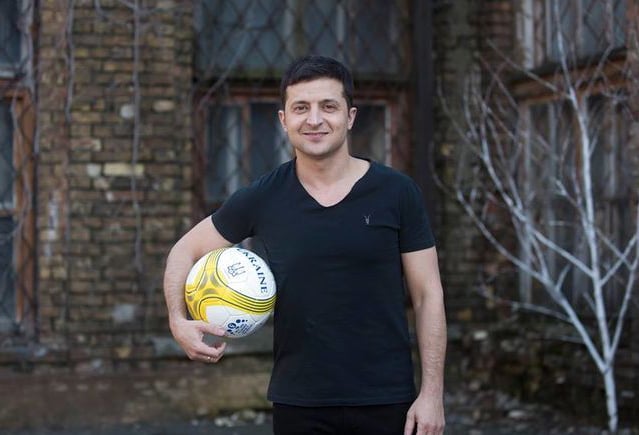By Paul Goble, Window on Eurasia
Even before his inauguration, incoming Ukrainian president has launched an information war against Moscow, calling on others in the post-Soviet countries to see what is “possible” if one does what Ukraine is doing and offering Ukrainian citizenship to those, including Russians, who are struggling against authoritarian regimes.
To the extent he follows through on these words, Kseniya Kirillova says, he will be conducting “an active information war” against the Kremlin and “will be struggling not so much for territory as for the hearts and minds of those who live there” (qha.com.ua/po-polochkam/igra-na-chuzhom-pole-smozhet-li-vladimir-zelenskij-perejti-v-nastuplenie-v-informatsionnoj-vojne-s-kremlem/).
“If current President Petro Poroshenko has placed the accent on the strengthening of the defensive capacity of the state including in the cultural sphere by creating an independent church, strengthening the Ukrainian language and banning Russian films and even social networks,” the US-based Russian journalist says, Zelensky is doing something even more threatening to Moscow.
He is showing is readiness to “’open’ Ukraine’s cultural and information space by giving the opportunity to translate the example of Ukrainian democracy not only to the Donbass but also to the pot-Soviet countries.” How far Zelensky will be and how effective this strategy will work remains to be seen.
As Kirillova points out, “already at the very beginning of the Ukrainian-Russian war, many analysts noted that Putin’s real fear was not that the post-Soviet countries would full away from ‘the Russian world’ but that they would establish a version of ‘the Russian world’ independent from Russia: the phenomenon of Russian culture free from imperial propaganda.”
Today, Russian officials in expressing their concerns that Ukrainians are not commemorating Victory Day are in fact displaying much greater fears of something else: the appearance in Ukraine of “an ‘alternative’ Victory Day,” one that shows that it is possible to feel very different about that conflict than the Kremlin wants people to.
As Kirillova puts it, “the chief fear of the denizens of the Kremlin is not the rejection of the former Soviet republics of reading Pushkin but that in them will appear a different reading of familiar works, the same poems and books in Russian but in ways that do not support Russian imperial aspirations but work against them.”
And that is true of the Moscow Patriarchate as well, which is less worried about the attacks on Christianity in Ukraine it claims to see than on “a demonstration that there exists ‘a different Christianity,’ not connected with Russian ‘hurrah patriotism’ and emphasizing the messianic role of Moscow.”
In short, although the Russian journalist does not use these terms, Muscovy today fears the rise of a new Novgorod just as it did five centuries ago, an alternative Russia that is more dangerous to the Kremlin’s imperial aspirations than any foreign enemy because it strikes at the heart of Moscow project from the inside.
The case of Crimean Tatar poetess Alie Kenzhaliyeva is instructive. “In her verses, she writes about how the pathos and militarist ideology and cult of war propagandized in contemporary Russia desecrates the real tragedy and memory of those who died,” an attack that Moscow propagandists cannot tolerate.
“It is possible,” Kirillova writes, “that had this history not attracted attention, a criminal case would have been launched against her. Kenzhaliyeva’s case thus shows something important: “the potential for destroying” Moscow’s pretensions by undermining its claimed monopoly on culture, history and language.”
There are, of course, real risks to such an approach by Kyiv. As some analysts have noted, Kirillova continues, there is the danger of playing on the Russian cultural field in this way because Moscow can more easily work against it and will be inclined to do so because of the greater threat it poses than that posed by Poroshenko’s approach.
In the wake of Zelensky’s election, Putin has taken steps that suggest he has concluded that the incoming Ukrainian leader is not “a serious opponent” and that the Kremlin can work against him far more effectively than it has against Poroshenko, viewing the new man not as “absolute evil” but as “a parody” of that.
And some in Ukraine are now worried, Kirillova concludes, that Zelensky’s “attempts to compete with Russian propaganda on the same field will succeed only in undermining the measures of information security that Petro Poroshenko introduced.” That may be true, but clearly a new battle line has been drawn – and one potentially more dangerous to Moscow.
By Paul Goble, Window on Eurasia





